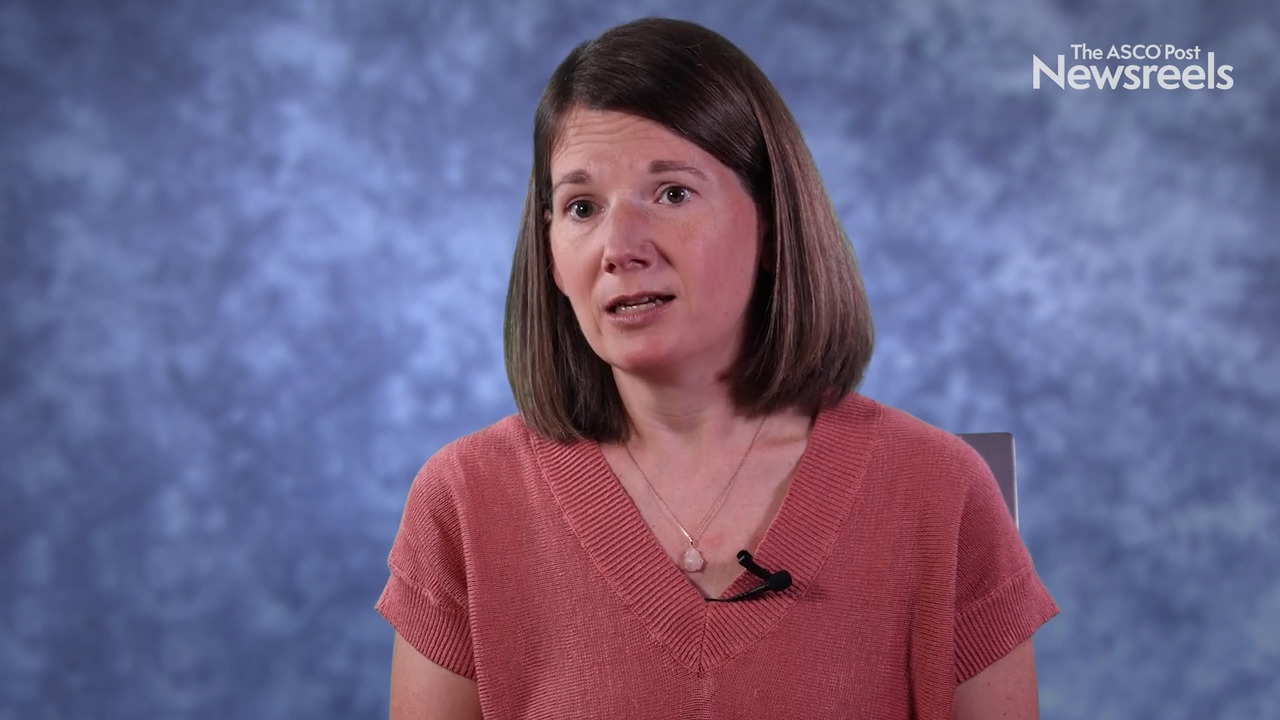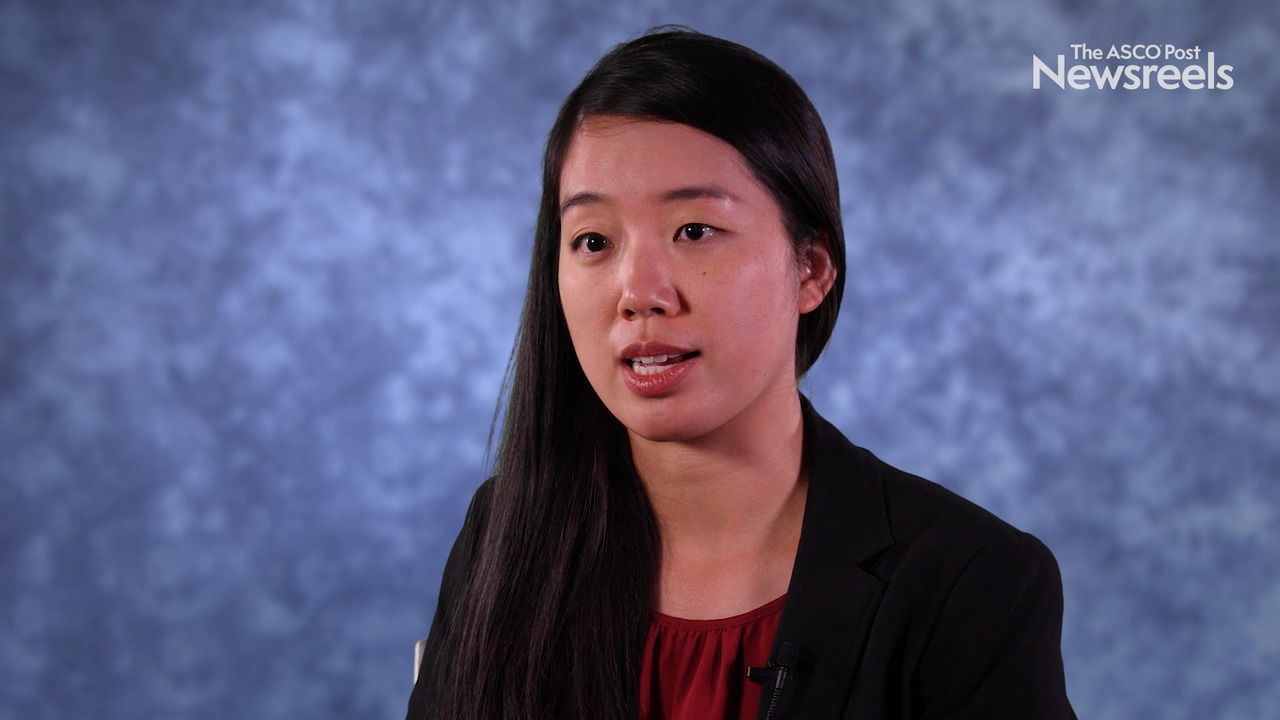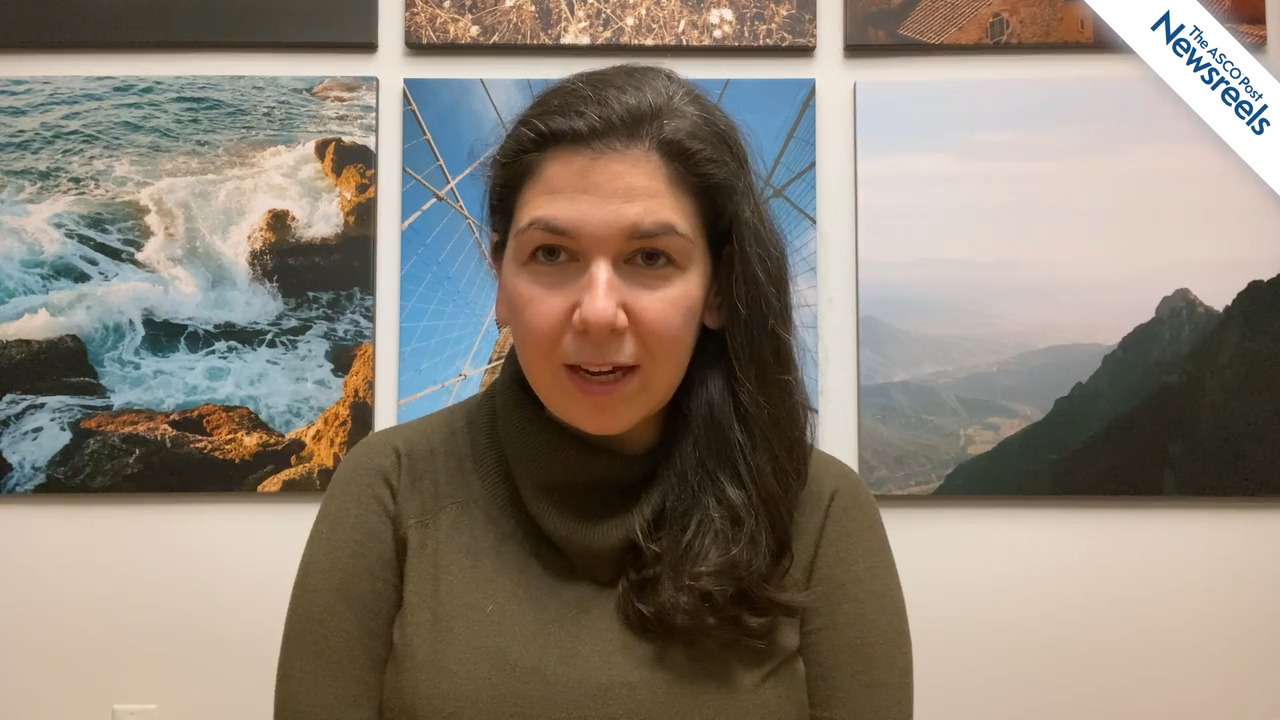Courtney Williams, DrPH, on Cancer Survivors: Working Together to Improve Patient Adherence
2021 ASCO Quality Care Symposium
Courtney Williams, DrPH, of the National Cancer Institute, discusses the costs associated with cancer survivors who don’t take their medications and cites the need for research to better understand whether residing in an urban or rural area may affect prescription adherence, and what interventions might help increase drug adherence and improve health outcomes.
The ASCO Post Staff
Katherine E. Reeder-Hayes, MD, MBA, of the University of North Carolina at Chapel Hill, discusses the timeliness of breast cancer care for Black women compared with non-Black women in North Carolina. Her data showed that greater geographic variation exists in the timeliness of breast cancer care for Black women, with regions surrounding larger urban centers having the largest disparities.
The ASCO Post Staff
Divya A. Parikh, MD, of Stanford University School of Medicine, discusses findings that suggest an evidence-based tool, the Serious Illness Conversation Guide, may engage patients with metastatic or recurrent urologic cancer in goals-of-care conversations, potentially resulting in an increase of documentation of their goals in the electronic medical record.
The ASCO Post Staff
Jenny Jing Xiang, MD, of Yale University School of Medicine, discusses a universal, standardized clinical trial prescreening protocol, which streamlined research recruitment and was associated with yearly increases in patient enrollment at the Veterans Administration (VA) Connecticut Cancer Center. The Center became the top-accruing VA site for National Cancer Institute–sponsored trials and was ranked in the top 10 enrolling sites nationally for VA and non-VA hospitals.
The ASCO Post Staff
Benjamin W. Corn, MD, of Shaare Zedek Medical Center in Jerusalem, discusses hope: what it takes for hope to thrive; how he and his colleagues are helping patients and providers become more hopeful through workshops; and his collaboration with the Southwest Oncology Group to aid patients, through hopefulness, to better adhere to treatment regimens.
The ASCO Post Staff
Morgan R.L. Lichtenstein, MD, of Columbia University Medical Center, discusses a single-center prospective study examining the complex relationship between time to oral oncolytic receipt and clinical or process-related factors, such as prior authorization, diagnosis, and insurance type.





